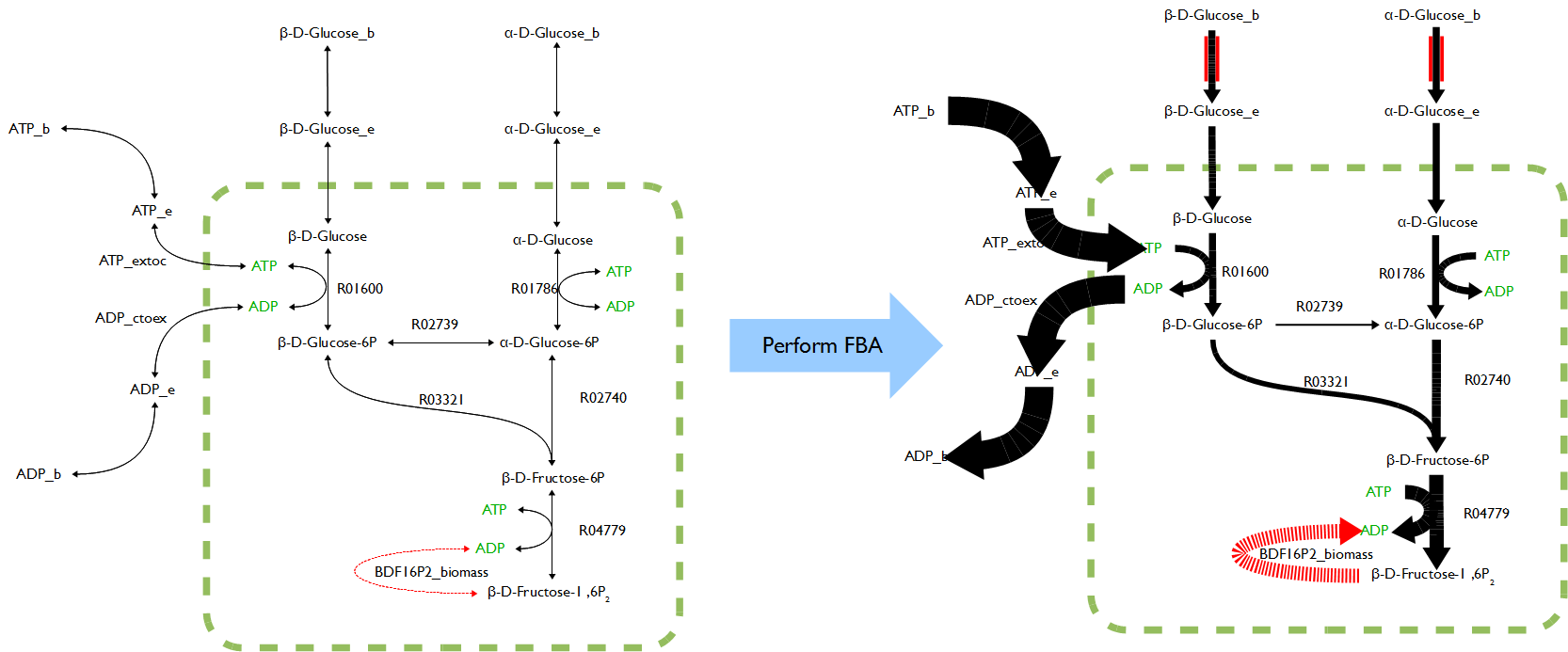Team:Calgary/Notebook/FluxAnalysis
From 2012.igem.org
(Difference between revisions)
| Line 9: | Line 9: | ||
<h2>Week 1 (May 1-4)</h2> | <h2>Week 1 (May 1-4)</h2> | ||
<p>This was the first week where we met with other team members and summarized the primary subprojects the team will be tackling this coming summer.</p> | <p>This was the first week where we met with other team members and summarized the primary subprojects the team will be tackling this coming summer.</p> | ||
| - | |||
| - | |||
| - | |||
<h2>Week 4 (May 22-25)</h2> | <h2>Week 4 (May 22-25)</h2> | ||
<h3>Concepts</h3> | <h3>Concepts</h3> | ||
<h4>Flux Balance Analysis (FBA)</h4> | <h4>Flux Balance Analysis (FBA)</h4> | ||
<p>Flux balance analysis (FBA) is a mathematical method for analyzing metabolism. It is a direct application of linear programming to biological systems that uses the stoichiometric coefficients for each reaction in the system as the set of constraints for the optimization.</p> | <p>Flux balance analysis (FBA) is a mathematical method for analyzing metabolism. It is a direct application of linear programming to biological systems that uses the stoichiometric coefficients for each reaction in the system as the set of constraints for the optimization.</p> | ||
| - | [[File:UCalgary 2012 FBAEx.png|thumb|600px|center]] | + | </html>[[File:UCalgary 2012 FBAEx.png|thumb|600px|center]] |
<h4> Extended Flux Analysis</h4> | <h4> Extended Flux Analysis</h4> | ||
<h4>Metabolic Network Reconstruction</h4> | <h4>Metabolic Network Reconstruction</h4> | ||
<h3>Tools</h3> | <h3>Tools</h3> | ||
| - | |||
| - | |||
<h2>Week 5 (May 28 - June 1)</h2> | <h2>Week 5 (May 28 - June 1)</h2> | ||
| - | |||
Revision as of 21:06, 1 June 2012
Week 1 (May 1-4)
This was the first week where we met with other team members and summarized the primary subprojects the team will be tackling this coming summer.
Week 4 (May 22-25)
Concepts
Flux Balance Analysis (FBA)
Flux balance analysis (FBA) is a mathematical method for analyzing metabolism. It is a direct application of linear programming to biological systems that uses the stoichiometric coefficients for each reaction in the system as the set of constraints for the optimization.
Contents |
 "
"
